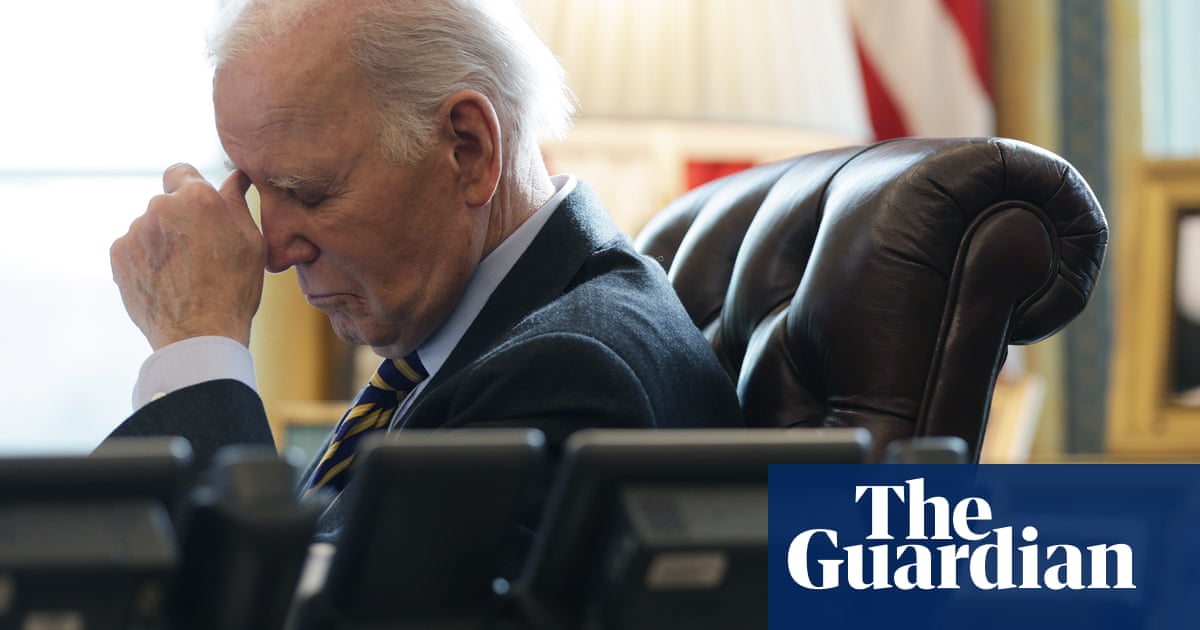A newly released recording appears to confirm thatJoe Bidensuffered some memory lapses while US president, struggling to recall the year his son died or when Donald Trump was first elected.
While being interviewed by a special counsel over his handling of classified records, the audio shows Biden’s response is marked by long pauses, a faint whispered voice and confusion over key dates, such as when his son Beau died (2015) or when Trump won his first presidency (2016).
The audio,released by Axios, includes attempts by Biden’s staff to remind or correct him on details during his interviews in October 2023 with Robert Hur, a special counsel at the Department of Justice. Hur, who investigated Biden’s handling of classified material, subsequently described the then president as a “sympathetic, well-meaning elderly man with a poor memory” in his final report, which recommended against charging Biden with any sort of crime.
Awritten transcript of the five-hour interview was released last year. But the newly released audio provides some context to Biden’s struggle to recall certain facts.
At the time, White House officials strongly denied that Biden was impaired in his ability to do his job as president, with allies continuing to back Biden until a disastrous debate with Trump in June 2024 resulted in mounting pressure for him to step aside as the Democratic candidate. He did so in favor of his vice-president, Kamala Harris, a month later.
Polling at the time showed that many Americans considered Biden, at the time 81 years old, to be too old to run again as president. Though he had beaten him in 2020, Biden’s decision to try to run again against Trump, himself just three years younger than Biden, has come under intensifying scrutiny.
At the release of Hur’s report, Biden and his allies reacted angrily to its claims. “There’s even a reference that I don’t remember when my son died,” Biden said last year. “How in the hell dare he raise that? Frankly, when I was asked the question, I thought to myself it wasn’t any of their damn business.”
The audio also includes Biden talking about how Barack Obama – whom he served as vice-president – didn’t want him to run for the White House in 2016 due to the belief that Hillary Clinton “had a better shot of winning the presidency than I did”. There were also deviations to ponder the influence of the Gutenberg printing press and the experience of driving a Corvette with the comedian Jay Leno.
Trump repeatedly mocked Biden’s age and gaffes before going on to defeat Harris in last year’s election.
However, the current president has also had lapses of his own, appearing to confuse E Jean Carroll, who accused him of sexual abuse and was awarded damages, with his ex-wife Marla Maples when shown a photograph during a deposition. He also claimed that the audience “went crazy” during his televised debate with Harris last year (there was no audience whatsoever in the room).
Trump has also continued his habit of delivering discursive speeches littered with multiple untruths and gross exaggerations while president and has even been accused of falling asleep during events, although the White House has denied these claims.
On Friday, Trump further raised eyebrows when he referenced the most notorious racial epithet when discussing the recent ceasefire between India and Pakistan, both nuclear-armed countries, with Fox News.
“It was getting deeper and more, I mean, more missiles,” Trump said. “Everyone was stronger, stronger, to a point where the next ones are going to be you know what: the N-word.”
“You know what the N-word is, right?” he asked host Brett Baier, who replied: “nuclear”. Trump said “yeah”, and both men laughed over the exchange.
